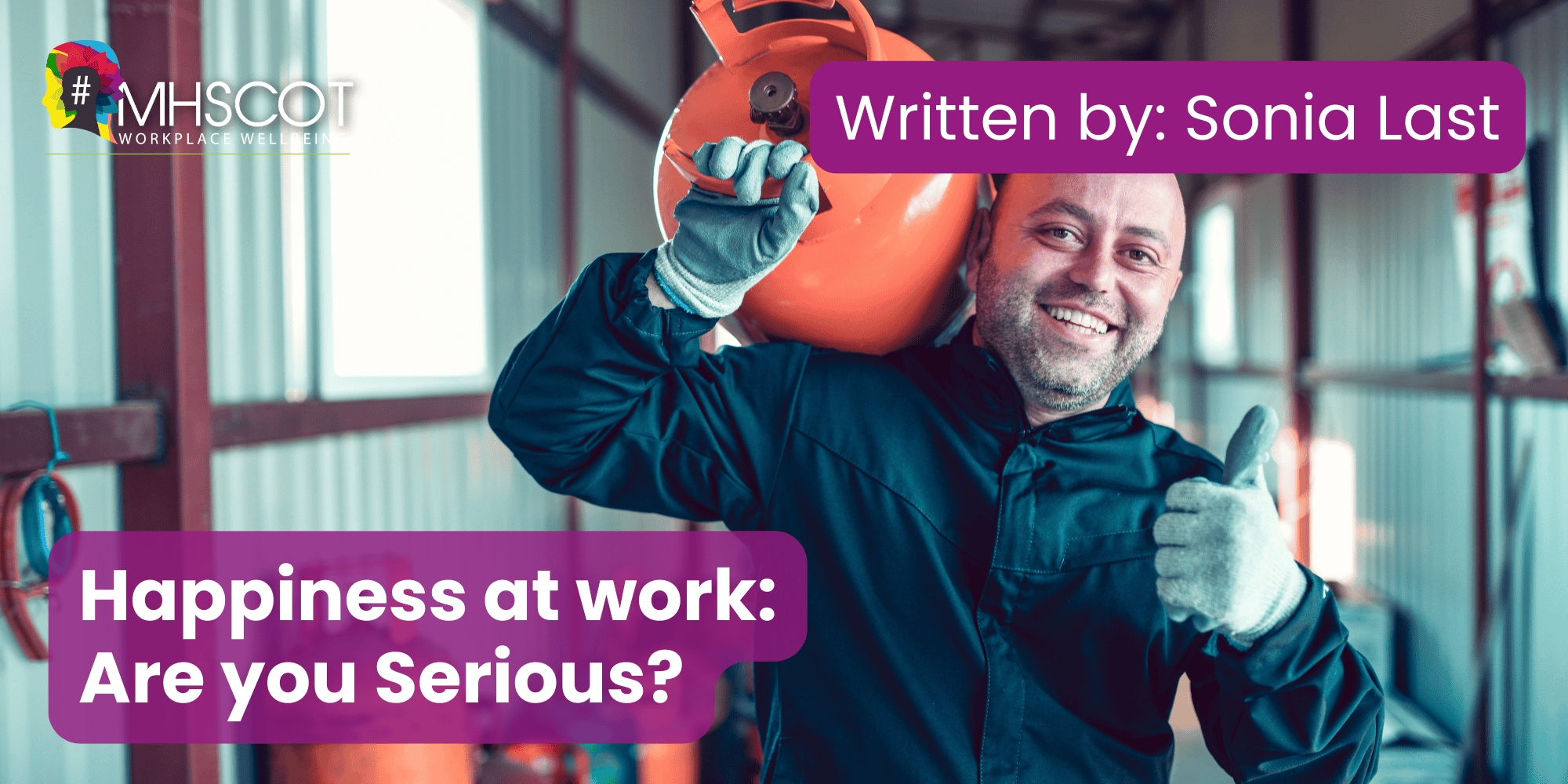
Happiness at work - are you serious?
3 minute read
Everyone I speak to lately seems to be tired and worn out. Tired of the excessive workloads caused by staff shortages; tired of being afraid to voice an opinion, tired of being unable to use their initiative to effect change or improvement.
Many of these people are working in organisations tasked with making our society function: those working on the front lines. Their grievances are not just about money, but about unsustainable and dangerous working conditions. Their dissatisfaction manifests as labour strikes, absenteeism, presenteeism or any one of the many descriptive terms given to employees who are disengaging in a desperate attempt to slow things down and gain some control.
Dictatorial and incompetent management are the primary factors causing people to lose hope that things will get better. Being so firmly ingrained in our workplaces, these attitudes and behaviours are difficult to challenge or change. Current research shows that 75% of the 2,000 individuals across all industries who participated in the Oak Engage - Toxic Workplace Report 2023, have encountered a toxic working culture. 87% Of them said that a toxic workplace culture has harmed their mental health. This shows that the majority of people are not coming into work with poor mental health, but that the working environment is the cause of it.
According to research, a toxic workplace is one where there is no room for mistakes, little trust, role uncertainty, extreme stress, office gossip, high staff turnover, inappropriate work boundaries, gaslighting, lack of career assistance, low morale, and negativity. You are not alone if this describes your place of employment.
The largest study of work happiness ever undertaken in the UK is summarised in the job site Indeed’s - Work Happiness Score. The results of nearly 6 million surveys show that more than a third (36%) of UK workers are unhappy in their job and that only (27%) feel happy at work most of the time. Their research found that feeling energised and having a sense of belonging and purpose are the biggest drivers of happiness at work, more so than flexibility or fair pay.
Keeping people mentally well in the workplace requires having robust mechanisms of prevention and early intervention. Preventing workplace induced illness is a fundamental requirement in any genuine or sustainable wellness programme. Even though happiness is an elusive state, being able to say that "Yes, I'm generally happy at work" suggests that the working day is not characterised by tension, fear, or instability.
The biggest impact on our sensibilities is not the news, the weather or the interest rate, but one other. A kind word, a helpful deed, a show of support can turn an impending crisis into just another passing moment. The way we talk to, relate to and work with one other has a profound impact on our mood and morale. Our human environment influences our potential to wither or bloom, so positive emotions, engagement, relationship, meaning, and accomplishment are the components that enable us to flourish. According to the American psychologist and educator Martin Seligman, people enjoy high morale in such an atmosphere because they feel a sense of belonging, are engaged in meaningful work, have their contributions recognised and are operating in a setting where good interpersonal skills are the norm.
Many organisations are taking proactive measures to improve working conditions by consulting with their teams. They are partnering with their employees to find shared solutions. In turn, employees are more willing to persevere through difficult times. They are not whitewashing or window dressing but responding quickly by implementing workload controls, health and safety protections, communication improvements, mental health training and most importantly, putting emotionally intelligent people in leadership roles. This is how they keep the talent they invest in and mitigate instability. Sharing how they do this with others in their field is becoming a powerful game changer.
Having a positive working culture is priceless but it doesn’t happen by accident or even necessarily by design. It is the result of daily practice delivered through personal communication, collaborative engagement and responsive leadership. Practicing such a workplace culture is a learned behaviour, exemplified by role models and reinforced through relationships.
In any organisation the guiding practices and attitudes will permeate and seep into every nook and cranny, which means that every area of operation will be influenced by and dependent upon people working together positively. Being alert to unhealthy elements in both the ecological sense and in the human environment requires vigilance and decisive action, because the business of work is serious business for all of us.
If we treat our working environment as a living, breathing micro-climate then we all have a responsibility to keep it healthy. Creating an underwritten sense of collective wellbeing is powerful enough to let us sleep at night and look forward to the next day.
Nothing more, nothing less.
Written by MHScot Team Member, Sonia Last.